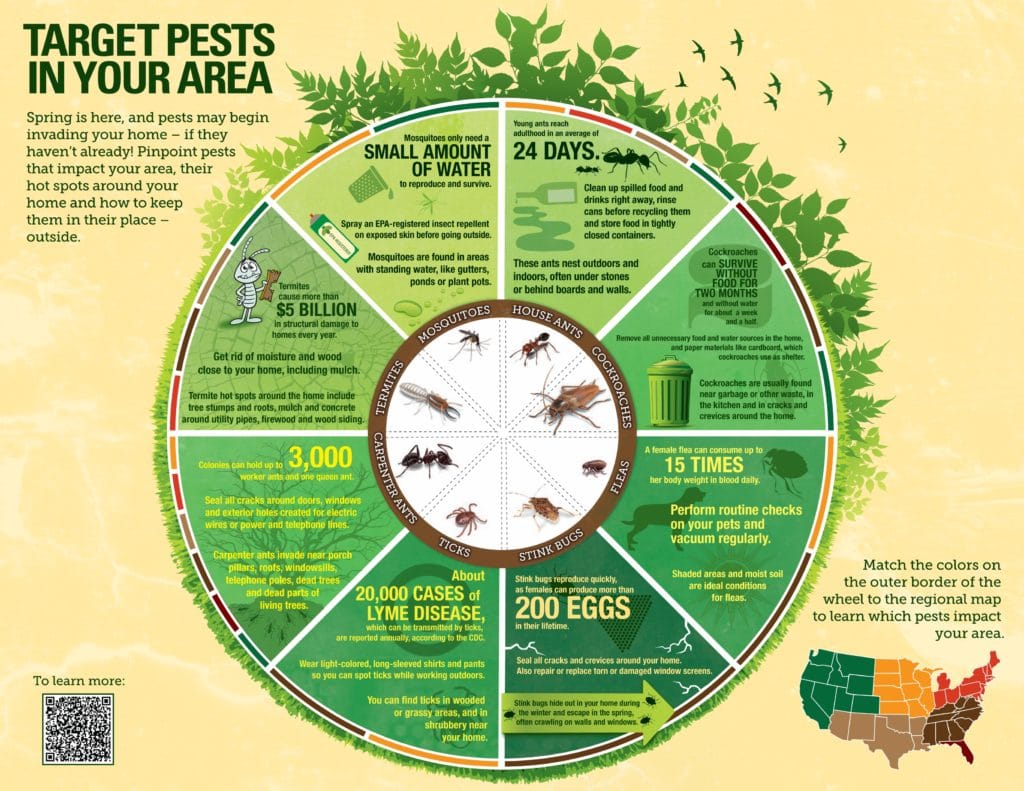Beyond The Spray: Exploring Advanced Techniques Utilized By Pest Control Specialists
Beyond The Spray: Exploring Advanced Techniques Utilized By Pest Control Specialists
Blog Article
Content By-Josephsen Stewart
Are you tired of relying entirely on sprays to manage insects in your home or office? While sprays can work, pest control specialists have actually developed innovative methods that surpass merely splashing chemicals.
These strategies not just offer much more reliable and lasting services, however additionally focus on lessening making use of hazardous pesticides. By checking out these advanced strategies, you will discover an entire new globe of insect control methods that are not just reliable, but additionally eco-friendly.
So, are you prepared to take your parasite control game to the following degree?
Integrated Insect Administration (IPM)
If you're looking for an effective and environmentally-friendly method to pest control, Integrated Pest Management (IPM) is the solution you require. IPM focuses on lasting prevention and monitoring of insects, rather than just relying on chemicals. This approach thinks about the details needs and habits of pests, as well as the surrounding environment.
By utilizing a combination of methods such as biological control, environment adjustment, and targeted pesticide usage, IPM aims to reduce the dependence on chemical therapies and reduce damage to non-target organisms.
One essential element of IPM is keeping track of and determining bugs properly. This includes consistently checking and examining the pest population, as well as identifying the specific varieties existing. By understanding the biology and habits of parasites, pest control professionals can establish targeted approaches to disrupt their life cycle and lower their numbers.
An additional essential component of IPM is making use of non-chemical control techniques whenever possible. This can include physical barriers, such as installing screens or sealing cracks and openings, to prevent insects from entering structures. In addition, social practices, like proper sanitation and waste monitoring, can assist remove parasite food sources and breeding premises.
When chemicals are essential, IPM focuses on using them judiciously and as a last resort. see this means selecting the least toxic and most efficient alternative, applying it specifically and just to influenced locations, and complying with all safety and security guidelines. By decreasing chemical use, IPM reduces the potential risks to human health and wellness and the environment.
Biological Control
To additionally boost the performance of Integrated Bug Administration (IPM), the next subtopic we'll check out is the approach of organic control. This technique makes use of natural killers or bloodsuckers to control pests.
Below are four vital elements of organic control:.
1. Intro of all-natural adversaries: In this approach, beneficial insects or organisms are introduced to the location ravaged with insects. These natural adversaries prey on the insects, aiding to lower their population.
2. Preservation of all-natural opponents: Instead of presenting brand-new organisms, this strategy focuses on creating a suitable atmosphere for existing valuable insects. This can be accomplished through supplying food, sanctuary, and water resources.
3. Augmentation: Below, the variety of all-natural enemies is raised unnaturally by breeding and launching them right into the infested location. This helps to swiftly reduce the pest population.
4. Push-pull strategy: This method incorporates repellents and attractants to control the habits of bugs. Repellents push pests away from crops, while attractants draw them in the direction of catch plants or locations where they can be conveniently controlled.
Habitat Modification
Habitat modification plays a crucial role in bug control by modifying the environment to dissuade parasite infestations. By making changes to the physical qualities of a space, you can produce an inhospitable atmosphere for bugs, making it harder for them to survive and thrive.
One usual technique of environment adjustment is getting rid of or reducing potential food sources for bugs. This can include appropriate waste administration, securing containers, and tidying up food crumbs.
Additionally, removing or lowering areas of standing water can help control parasites like mosquitoes.
Altering the landscape by cutting trees and hedges away from structures can additionally protect against bugs from accessing your building.
Conclusion.
So there go to this site have it - the advanced strategies made use of by bug control professionals go beyond just splashing chemicals. Integrated Pest Administration (IPM) incorporates various approaches to efficiently manage pests, while organic control takes advantage of natural enemies to keep parasite populaces in check.
Habitat alteration likewise plays a critical function in stopping insect infestations.
Did you know that according to a research, executing IPM techniques reduced pesticide usage by an average of 71%? This not only protects our health and the environment however additionally saves money in the long run.
